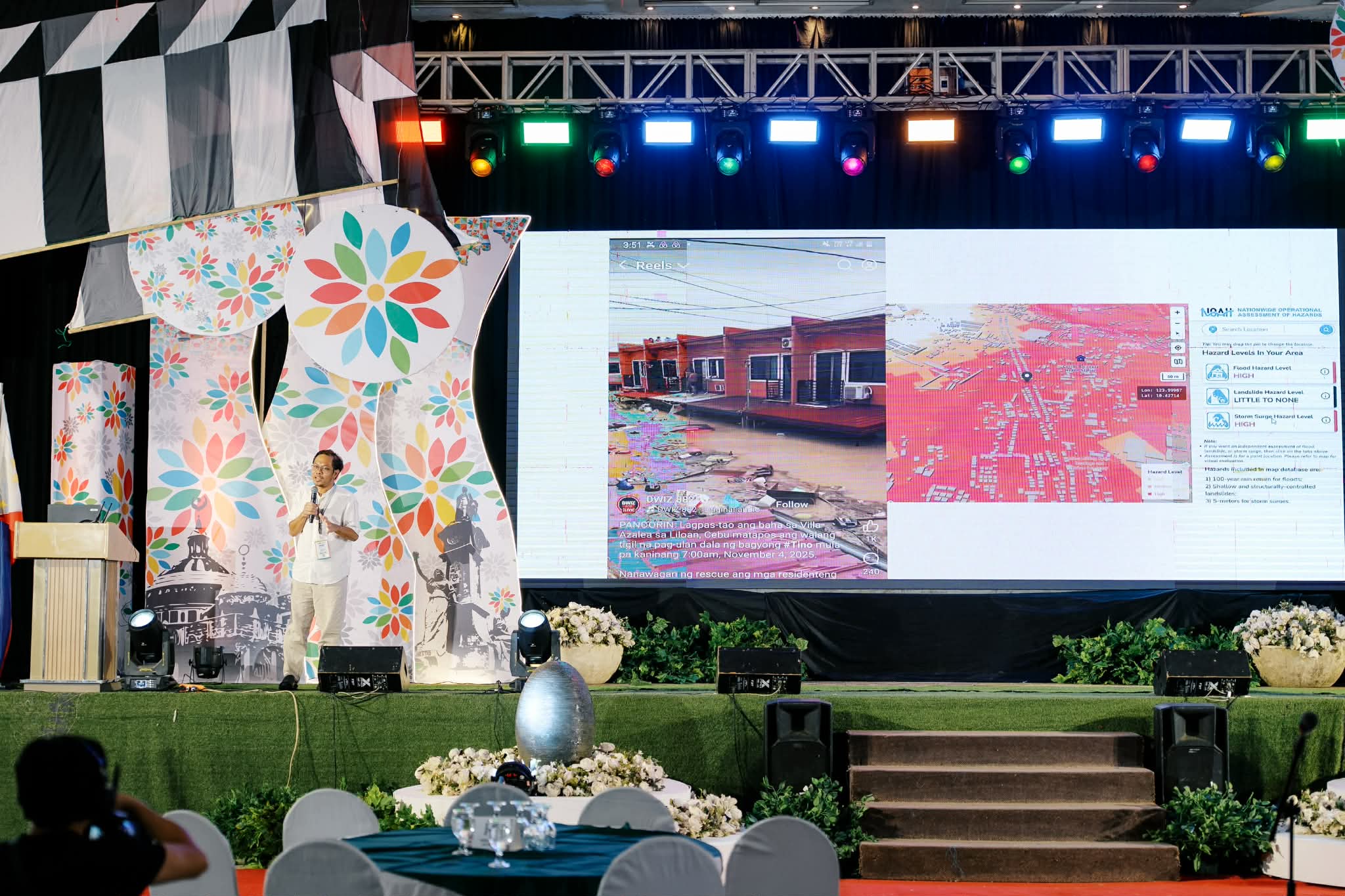
Dr. DJ Darwin Bandoy speaks on harnessing the potential of special disease mapping.
November 2025—Zamboanga City.
Dr. DJ Darwin Bandoy, newly appointed Director of the Research and Creative Work Division at the UP Resilience Institute, delivered a talk at the inaugural Health and Climate Change Zonal Forum held from November 5 to November 7, 2025, at the Garden Orchid Hotel. The event, titled “Climate and Health Action Networks as Good Governance and Community Empowerment Platform,” or the “CHANGE FORUM,” aimed to shed light on the critical connections between climate change and public health.
Dr. Bandoy’s address emphasized that disasters are not random; we have risk maps to guide us. He discussed the technologies available for addressing climate and health issues. Dr. Bandoy demonstrated how to use the NOAH Website to identify high-risk areas. He stressed that we have a significant responsibility to ensure that evacuation centers are safe. Additionally, he advised that health units, centers, and facilities should be constructed in non-risk areas. He concluded his talk by introducing a disease-mapping tool that identifies hotspots where outbreaks may occur, based on available data for analysis. Health offices can utilize this tool.
Dr. Bandoy’s one health expertise harnesses UPRI’s established strength in hazard mapping, now enhanced by bringing specialized disease mapping context into the framework. While UPRI has long identified where disasters strike and how environmental hazards propagate across landscapes, integrating rigorous disease mapping adds the epidemiological dimension—revealing where health vulnerabilities concentrate, which populations face compounded exposure, and how climate-driven environmental shifts reshape disease transmission patterns. The NOAH Website maps physical risk; disease mapping reveals where outbreaks cluster and why. Together, this integrated approach enables health systems to move beyond reactive response, allowing planners to position facilities strategically, anticipate cascading climate-health impacts, and equip communities with actionable, evidence-based data about their specific vulnerabilities. This collaboration anchors one health principle in concrete, spatial intelligence.
Organized by the Department of Health (DOH) in partnership with the Health and Climate Change Office (HCCO), the Health Promotion Bureau, the DOH Zamboanga Peninsula Center for Health Development (DOH ZP CHD), and the Zamboanga City Medical Center (ZCMC), the forum attracted participants from Regions IX, X, XI, XII, CARAGA, and BARMM. The gathering brought together a diverse group of experts, government leaders, health professionals, and partners to raise awareness of how climate change impacts health outcomes.
Throughout the three-day event, discussions centered on fostering multisectoral collaboration and enhancing the health system’s capacity to tackle the climate crisis. Experts shared insights on innovative approaches to integrating climate considerations into health policies and programs, showcasing community-led, climate-smart initiatives that can empower local populations.
